Pregnancy is a sensitive state followed by dramatic hormonal and physical changes. Besides switching to larger clothes, pregnant women often experience changes in their complexion. Though they may be unpleasant, it is essential to avoid beauty products and treatments with potentially harmful ingredients for the baby.
This article lists ingredients to avoid and those that are safe to use while pregnant and nursing and recommends the best pregnancy-safe skincare products.
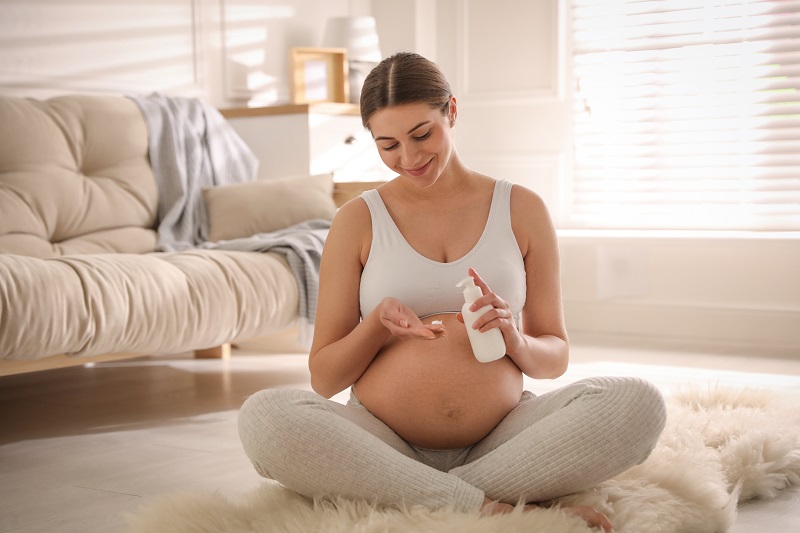
Does Skin Change During Pregnancy?
Hormonal fluctuations during pregnancy can cause various changes to the skin - some of them unpleasant and others improving the woman’s appearance. Many pregnant women enjoy smoother, more radiant skin, shinier hair, and stronger nails. Others struggle with acne, melasma, stretch marks, spider veins, and hair loss. The state of each pregnant woman’s skin is unique and depends on genetics, hormones, lifestyle, and skin care.
Ingredients to Avoid During Pregnancy
Research on the safety of cosmetic ingredients during pregnancy is scarce because few participants are willing to risk their babies’ wellbeing. Most data comes from animal studies, a few human special-case studies, and anecdotal evidence.
Scientists claim that topical products act locally and generally have a low systemic absorption rate, which limits their ability to compromise the fetus. In other words, most cosmetic products are considered harmless. However, some ingredients penetrate deeper into the dermis and can enter the bloodstream, posing a developmental and reproductive toxicity threat.
Here are some of the ingredients to avoid during pregnancy and nursing:
Retinoids
Retinoids are vitamin A derivatives widely used in cosmetics to improve cellular turnover, balance oil production, and reduce wrinkles. Oral retinoids are forbidden during pregnancy because they may cause severe fetal malformations. Though systematic absorption of topically applied retinoids, such as retinol and tretinoin, is low, doctors recommend avoiding them while pregnant and nursing.
Note: Learn more about retinol products and how to choose between a retinol cream and serum.
Benzoyl Peroxide
Benzoyl peroxide is a potent ingredient in topical creams and lotions for acne-prone patients. Doctors maintain it is safe for use during pregnancy and nursing, but they recommend using products with low concentrations. It is best to consult your obstetrician regarding benzoyl peroxide use.
Salicylic Acid
Salicylic acid is a beta hydroxy acid found in many acne products because it helps reduce sebum and blocked pores. Its reproductive toxicity potential is low, but medical providers caution women to use low concentrations of this ingredient (up to 2%).
Hydroquinone
Hydroquinone is a skin-whitening agent often used to treat melasma and other hyperpigmentation concerns. Studies show that up to 45% of hydroquinone is absorbed systemically through the skin, so doctors recommend staying away from products with this ingredient during pregnancy.
Phthalates
Phthalates are chemicals that can be found in various items, from skincare products to home and gardening items. Scientists suspect they may cause hormonal disbalances and birth defects. The most common phthalate in cosmetic products is diethylphthalate (DEP).
Formaldehyde
Formaldehyde is commonly used as a preservative in skincare products, but it causes skin irritations and allergic reactions. Health experts warn all consumers, not just pregnant and nursing women, to avoid products with formaldehyde. If used during pregnancy, formaldehyde can reach the fetus through the placenta and cause premature birth and congenital anomalies.
Chemical Sunscreens
Chemical sunscreens contain ingredients such as oxybenzone, octocrylene, octinoxate, and avobenzone, which are not recommended during pregnancy. Although they are FDA-approved, they may enter the bloodstream and affect the fetus.
Safe Active Ingredients to Use During Pregnancy and Breastfeeding
If you’re pregnant or have given birth, opt for safe alternatives to popular skin-enhancing ingredients.
Anti-Inflammatory Ingredients
New moms experiencing melasma, acne, and other skin imperfections may respond well to gentle anti-inflammatory and exfoliating agents, such as alpha-hydroxy acids (glycolic, mandelic, and lactic) and azelaic acid. They help reduce breakouts, minimize redness, and improve skin tone.
Note: Learn more about skin inflammation, what triggers it, and how to reduce it.
Bakuchiol
Bakuchiol is a gentle, plant-based, anti-aging alternative to retinol. Cosmetic experts consider it safe for use during pregnancy and nursing. It can help reduce redness and pigmentation, restore firmness, and smooth wrinkles.
Topical Antioxidants
Antioxidants are potent tools in combating premature aging signs exacerbated by hormonal changes in pregnancy. The following antioxidants are considered safe during this sensitive period.
- Vitamin C – A potent skin-brightening agent, it helps reduce melasma and hyperpigmentation in pregnancy. It also maintains healthy, elastic veins.
- Vitamin E – Improves skin elasticity and may help reduce stretch marks.
- Green tea – A powerful antioxidant and anti-inflammatory agent, green tea calms irritated skin, helps with discoloration, and regulates oil production.
- Resveratrol – Strengthens the natural skin barrier, improving firmness and elasticity.
- Niacinamide – Provides various skin benefits, including reduced dark spots, stronger skin barrier, improved skin tone, and reduced fine lines and wrinkles.
Note: If you are dealing with overproduction of sebum, read our article and find out how to get rid of oily skin.
Moisturizers
Dry skin is a common skin concern during pregnancy for which skin experts recommend the use of moisturizing creams and oils. The following moisturizing agents are considered safe during pregnancy and breastfeeding.
- Hyaluronic Acid
- Peptides
- Ceramides
- Glycerin
- Coconut Oil
- Cocoa Butter
Mineral-Based Sunscreen
Mineral-based sunscreens are considered a pregnancy-safe alternative to chemical products. They contain the mineral ingredients zinc oxide and titanium dioxide, which deflect UV rays and are not absorbed by the skin.
Make sure you are using sunscreen with an SPF of at least 30. Also, wear protective clothing when outside, such as wide-brimmed hats, sunglasses, and long sleeves, to reduce the harmful effects of the sun.
Note: Read our article and find out how to choose a sunscreen.
How to Check if Products Are Safe to Use During Pregnancy and Breastfeeding
The safest way to ensure you’re using pregnancy-safe skincare products is to ask your obstetrician or dermatologist for help.
The Environmental Working Group has created a helpful resource to help you avoid unsafe ingredients. They rank hundreds of personal care products and ingredients based on potential reproductive toxicity and other health risks.
Make sure to read product labels carefully and stop using those with ingredients we’ve flagged as potentially risky.
6 Best Pregnancy-Safe Skincare Products
The following skincare products are dermatologist-approved and formulated with gentle ingredients that will help you take care of your skin during pregnancy.
1) Alastin Gentle Cleanser
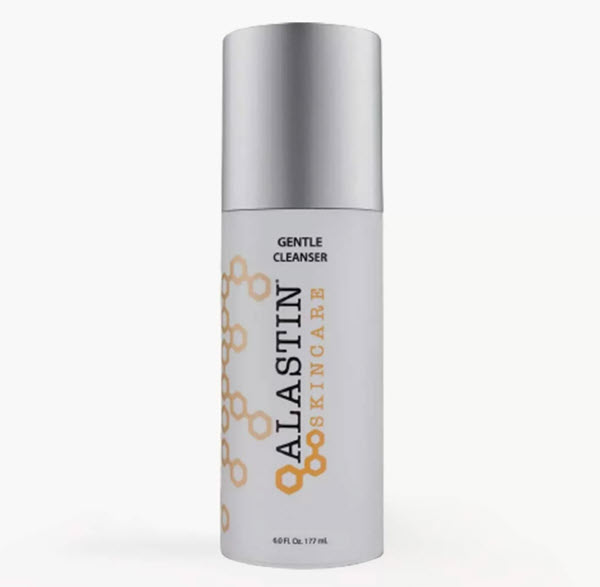
Start your morning and night skincare routine with a gentle cleanser. We recommend Alastin’s product formulated with D-panthenol (vitamin B5), bisabolol, and oat kernel extract to soften, calm, and moisturize the skin.
2) Osmosis Replenish MD Antioxidant Infusion Serum
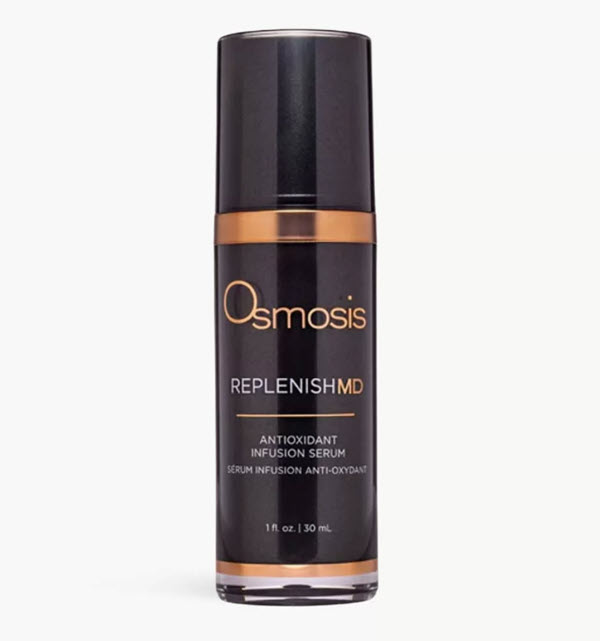
With 17 potent antioxidants and moisturizing agents, including niacinamide, vitamin E, glutathione, and glycerin, Replenish MD can help reduce skin dryness, dark spots, and blemishes during pregnancy. Use it in the morning and evening after cleansing and before moisturizing.
3) Skinbetter Science Even Tone Correcting Serum
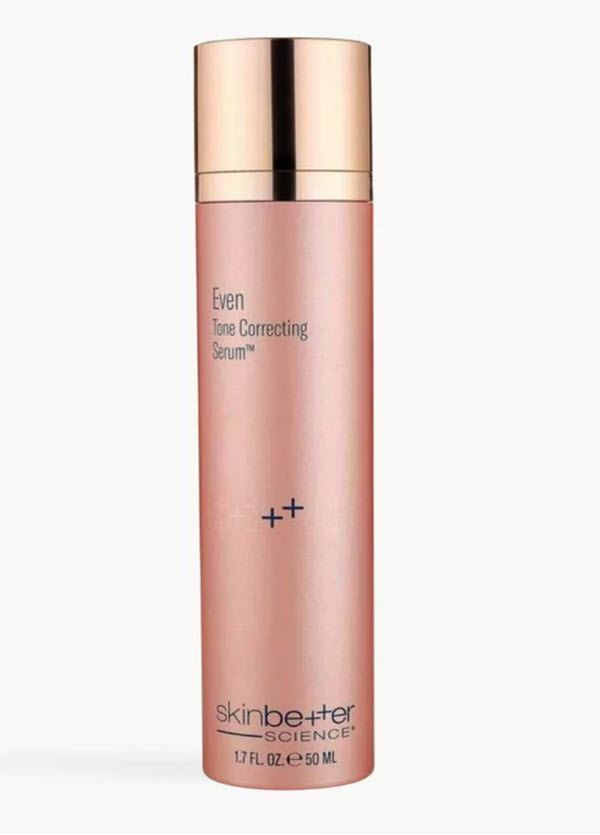
For a more powerful ally against melasma, dark spots, and other pigmentation concerns during pregnancy, try Even Tone Correcting Serum. It is formulated with potent skin-brightening agents, such as vitamin C in Kakadu plum extract, and is free of hydroquinone, retinol, parabens, and fragrances.
4) Osmosis MD Hydrate Plumping Moisturizer
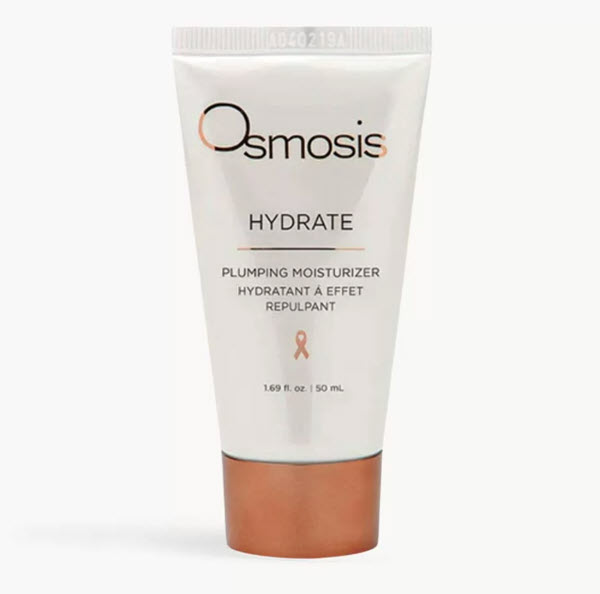
Hydrate contains all the moisturizing superheroes: sodium hyaluronate, glycerin, squalane, shea butter, and jojoba oil. It provides intense hydration and restores skin elasticity.
5) Osmosis MD Enrich
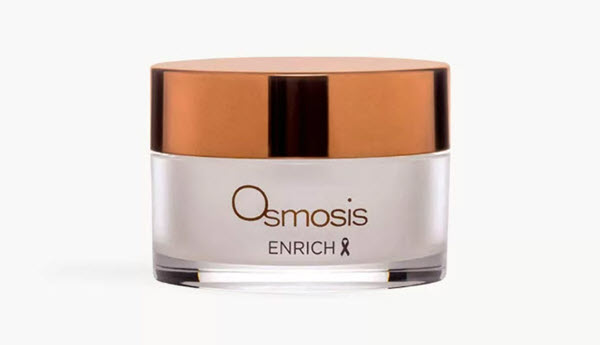
Enrich supports your skin’s ability to repair itself at night thanks to potent antioxidants, soothing oils, and nourishing botanicals. It provides deep hydration and enhances repair.
6) SkinMedica Essential Defense Mineral Shield Broad-Spectrum SPF 35
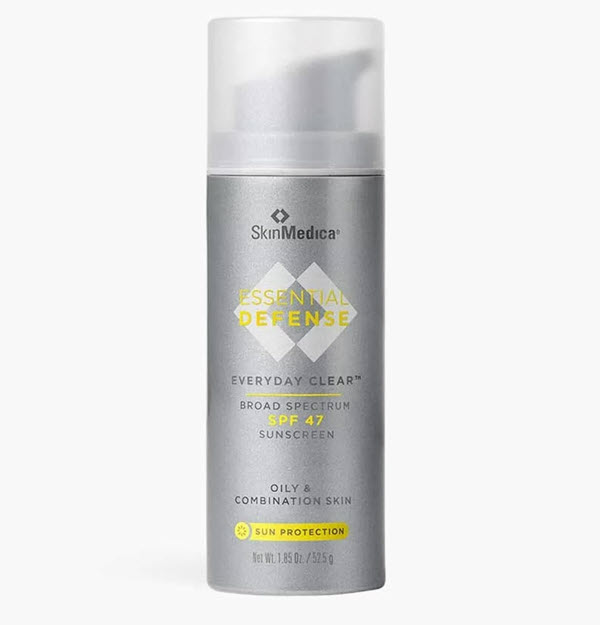
Don’t forget to apply mineral sunscreen as the last step in your morning skincare routine. Essential Defense by SkinMedica contains pregnancy-safe physical UV blockers (zinc oxide and titanium oxide) and SPF 35. It is free of fragrances and parabens and suitable for sensitive skin.
Pregnancy-Safe Skincare Routine
The basic principles of regular skin care also apply to a pregnancy-safe skincare routine. Try to use fewer products and make sure your cleansers, serums, and creams don’t contain pregnancy-unsafe ingredients.
Daytime routine
- Use a gentle cleanser and lukewarm water to remove impurities.
- Apply antioxidant serum (optional).
- Use a hydrating cream or facial oil.
- Apply sunscreen.
Nighttime routine
- Cleanse the skin.
- Apply a night repair serum.
- Apply a moisturizer.
Skin during pregnancy is especially prone to dryness, so it is important to moisturize it day and night.
Conclusion
Proper and consistent skin care is an effective way to maintain skin health and a youthful appearance. The skin requires extra attention during pregnancy and nursing. Learn which products are pregnancy-safe and, if uncertain, consult our friendly Vibrant Skin Bar cosmetic professionals.


